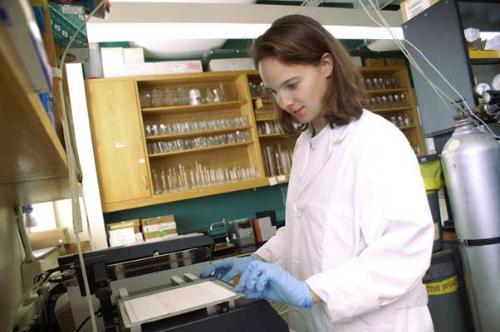Godfrey Nalyanya, an extension associate of crop science is involved in an organization that is taking the initiative to decrease and prevent the use of harmful pesticides on public school campuses across the nation.
The Integrated Pest Management program is a nationwide, state-funded initiative aimed at controlling pest infestation while reducing the use of dangerous pesticides.
Nalyanya works at Williams Hall, where he organizes outreach programs aimed at creating IPM programs in local public schools. According to Nalyanyam, there are about 21 states that have passed legislation that requires their schools to implement these practices.
“Our goal is to create and maintain a safe and healthy environment where students and teachers can learn and work,” Nalyanya said.
Nalyanya said that many schools take an unhealthy approach to pest control and that educating school administrative officials about less-damaging alternatives is a big part of what IPM does. “Many schools contract exterminators to come in and spray pesticides whether or not there is a pest problem,” said Nalyanya. “We don’t say ‘never use pesticides,’ but before anything is done, we have someone take a look around to see if conditions are conducive for pests.”
The IPM program suggests a less-invasive means of prevention to limit the amount of poisonous pesticide residue in the air and on frequently touched surfaces.
“We recommend the use of reduced-risk material pesticides, coupled with inspections,” Nalyanya said.
Joshua Ward, a senior in agricultural pest management, said that he feels reducing the use of pesticides is a crucial task.
“Cutting the use of pesticides is better for the environment and that’s always important,” Ward said.
Nalyanya said simply improving sanitation standards often and repairing damaged areas in a building can significantly help with pest prevention.
“Pests need a place to hide, water and food,” said Nalyanya. “When conditions are unfavorable, they will not establish and multiply.”
While he is now mainly working with local schools, Nalyanya explained that there are plans to expand the program to a larger demographic.
“At this point, we have been doing mainly public schools,” said Nalyanya. “In the future, we will look at universities, child care facilities and wherever people live.”
Nalyanya said although right now there are no University-affiliated students involved in the program, he hopes to enlist student assistance in the near future.
“We will probably work something out with faculty who have students interested in community service,” Nalyanya said.
William Keith, a first year student in urban pest management, said he doesn’t think the use of pesticides is a real problem and he wouldn’t be interested in working with IPM.
“I don’t feel that pesticides hurt the environment that bad[ly],” said Keith. “They don’t give off as much pollution as car exhaust and other chemicals.”
According to Nalyanya, IPM has infinite expansion potential and they will continue research efforts to help create a healthy, safe environment for everyone.
“This is a universally applicable pest approach that can keep homes free of pests,” Nalyanya said.








